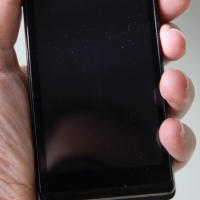Mobile Users Eager to Share Data, but Require Security and Ownership

We share everything, from the news of our first big-boy job to our baby’s first bath. Facebook, Twitter, and other various forms of social media encourage users to share data that was perceived as highly personal just a few years ago, and the latest mobile games are constantly pushing you to parade high scores and various individual preferences.
But that doesn’t mean that people want to pass along every single piece of data—significant or otherwise—to friends and family. Users want the option to do so, but new research reveals that there’s a desire to be in control of one’s digital persona.
The Microsoft Digital Trends 2015 report shows that people’s attitudes toward digital and connected devices have changed significantly since just two years ago. Previously, users wanted to be more anonymous. Now, the idea of putting yourself out there isn’t nearly as frightening.
“. . . [W]hat we’re really starting to see is a move away from that privacy conversation, and more of a conversation around controlling the narrative about ‘my digital self,’” said Natasha Hritzuk, senior director of Global Consumer Insights at Microsoft. “Globally, 78 percent of consumers are aware of how their online presence, and the data it generates, powers the digital world.”
Of course, people still want privacy. With so many services asking for credit card information, birthdates, and even areas of residence, there needs to be enough privacy and security in order for the user to opt in.
However, consumers aren’t as concerned that their presence is now out in the open. Rather, the worry is over what this digital footprint actually conveys, and how that impacts the specific experiences they want. They want their data to go to work for them, coloring their current experiences and helping to shape those in the future.
There’s also a desire for data ownership. According to data from TRUSTe, 69 percent of US consumers think they deserve to own any data collected through their mobile devices. With so many different Internet of Things gadgets out in the wild, that’s quite a lot of data to own.
“I don’t think we serve technology,” said one consumer interviewed for Microsoft's report. “The technology should serve us—to allow us to do the things we do in life when we want and better than before.”

